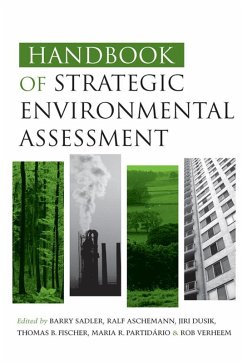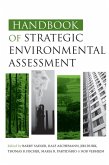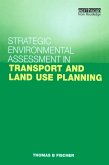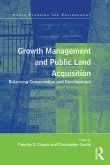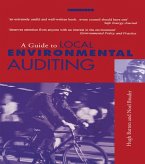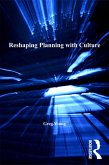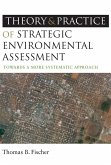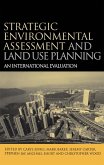This authoritative handbook surveys the full breadth and depth of SEA, bringing together a range of international perspectives and insights on the theoretical, methodological and institutional dimensions and practical issues of the field. It then subjects this conventional wisdom to a critical reappraisal, looks at the vast lessons of experience and offers new ideas and interpretations as to where the field is going. The volume is organized into six major sections, beginning with an introduction and overview of the development of the field and a framework for evaluating SEA good practice. Part I comprises a review of SEA frameworks in leading countries (Australia, Canada, New Zealand and the USA), the European Union and developing regions (Africa, Asia, Latin America and Newly Independent States). Part II reviews SEA practice in several major sectors (energy, minerals, transport, water, development assistance and coastal zone management). Part III addresses the linkages between SEA and other comparable tools such as spatial planning and environmental management. Part IV probes key cross-cutting issues in SEA, including how to address cumulative and trans-boundary effects. Part V identifies ways and means of SEA process and capacity development, focusing on how to improve and upgrade the theory and practice of the field. Part VI examines the shift from conventional SEA towards more integrative approaches, drawing on experience and examples from a number of countries. Published with IAIA
Dieser Download kann aus rechtlichen Gründen nur mit Rechnungsadresse in A, B, BG, CY, CZ, D, DK, EW, E, FIN, F, GR, HR, H, IRL, I, LT, L, LR, M, NL, PL, P, R, S, SLO, SK ausgeliefert werden.

